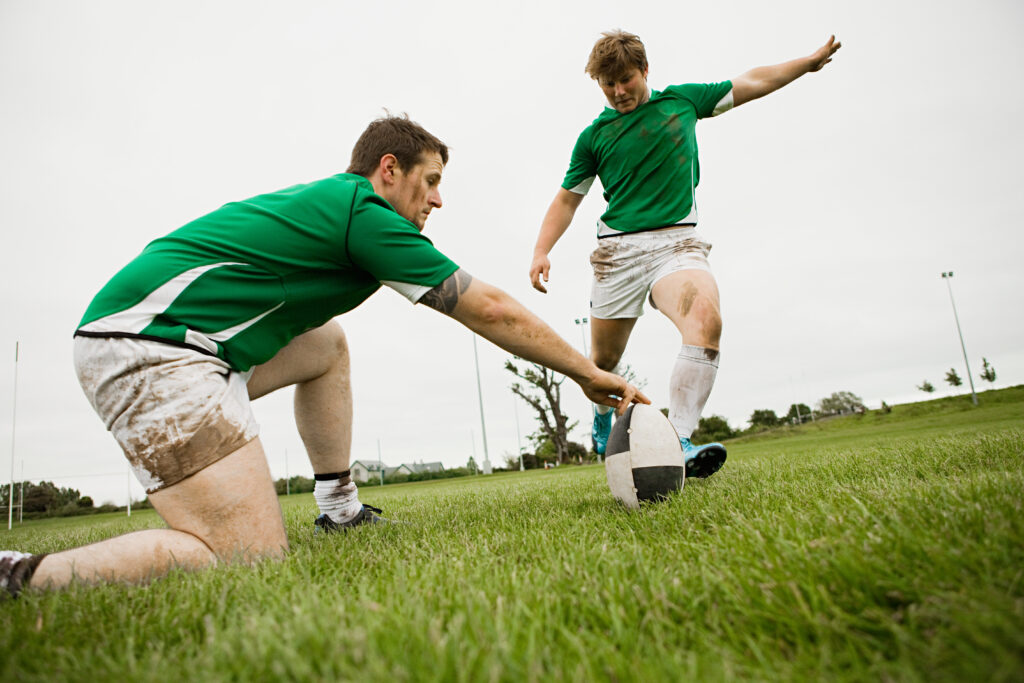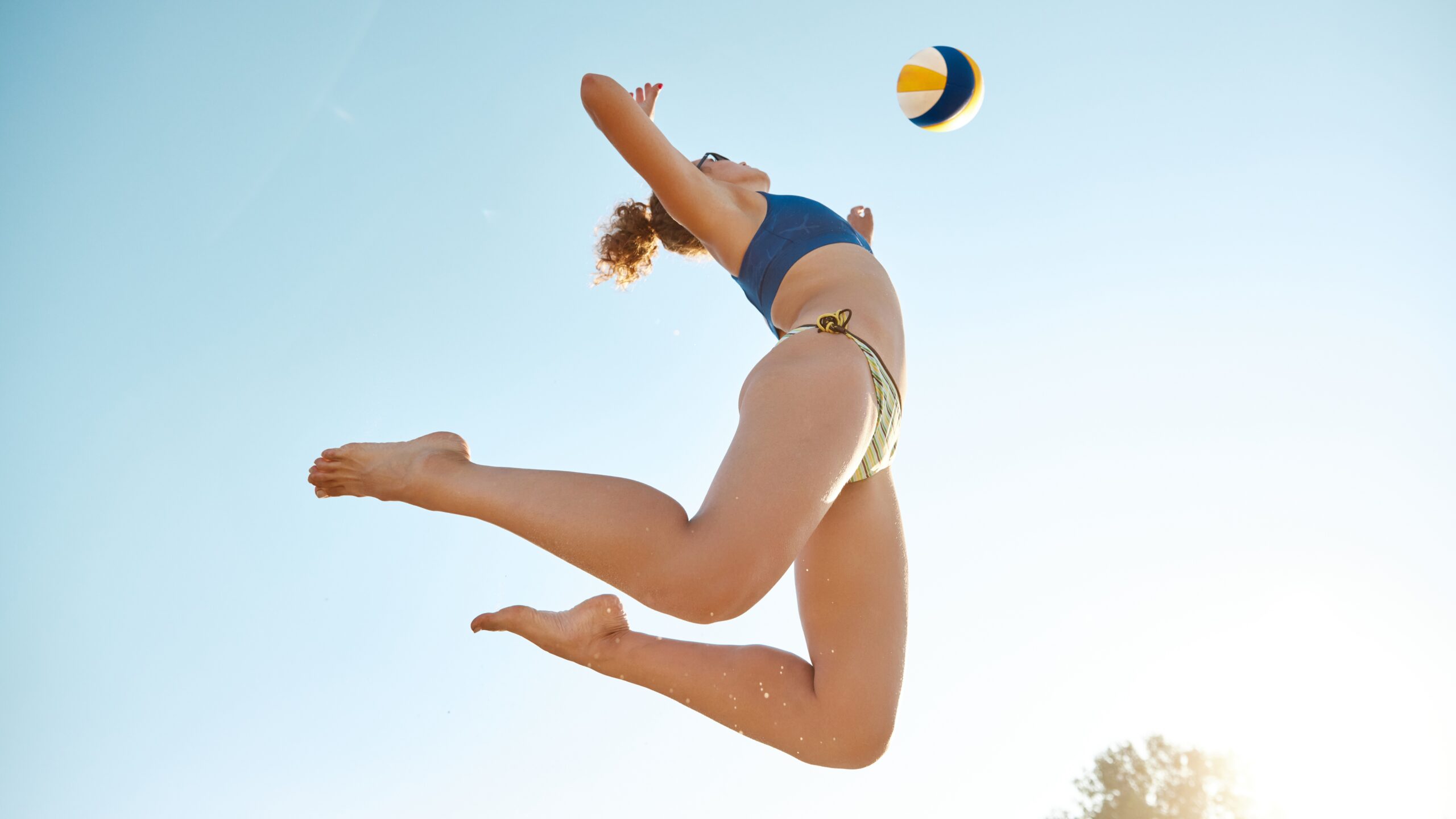Creatine supplementation is one of the most widely studied and scientifically backed ways for athletes to improve their athletic performance in their workout routines and activities.
It is an amino acid already present in the body and provides a quick, limited source of energy for very high intensity muscle contractions that sportspeople can benefit from, regardless of their routine of choice.
In all the years it has been studied, creatine has been demonstrated to be safe and is not banned by any sporting authority, since it is a naturally occurring substance.
In this new article we will dig further into the specific effects of creatine in a handful of the most popular competitive sports.
Here we go again with CREATINE AND SPORTS (Part 2)!

LET’S TALK ABOUT RUGBY
The benefits of creatine are usually associated with short-burst anaerobic power activities, such as rugby. These generally observed advantages include increased strength, endurance, bodyweight and muscle mass, and reduced body fat.
On a more specific level regarding rugby athletes and the characteristic exercises associated with it, research offers positive feedback.
For instance, a study has shown that creatine supplementation improves muscular endurance, as tested in the number of repetitions for combined bench press and leg press tests. It also proved positive effects on body mass and lean tissue mass – directly related to the on-field performance -, as well as better post-workout recovery times.
Another piece of research proved a significant improvement in the number of sit-ups and push-ups among players, with creatine assumedly increasing muscle phosphocreatine stores in most athletes. Furthermore, isolated sprint performance over 50 m also improved considerably in the creatine group of rugby players, which is invaluably useful in a sport as heavily reliant on speed as rugby.
Even taking into consideration that the amount of creatine taken up by the muscles varies by person and is also influenced by the rugby player’s diet – notably his meat and fish consumption –, science consistently backs up the visible benefits of creatine for rugby players.

TIME FOR HOCKEY
In another example of a sport partially dependent on short and intense bouts of energy, hockey players will generally benefit from an increase of intramuscular creatine that prolongs ATP replenishment, allowing for prolonged resistance to fatigue, and helping the system that allows energy to be recycled at the cellular level.
Scientific research has proven that there are two essential ways in which hockey players can directly benefit from these factors. On the one hand, they will be able to get more explosive reps out with more intensity. On the other hand, players will notice an improvement in their short burst sprints, which are core to the nature of the game.

RUNNING WITH CREATINE
Regarding the use of creatine supplementation, the benefits are clear whether your running routines are oriented to sprinting exercises or if you prefer focusing on resistance training.
For the first case, sprinters who may want to increase their muscle mass or strength gains are in for a treat.
Studies have demonstrated that creatine supplementation increases lean tissue mass, type II fiber area, insulin-like growth factor-1, muscular strength, muscular endurance, and power output on the Wingate test, which measures both muscular power and anaerobic capacity in a 30-second time period. These increased strength and power offer invaluable benefits to sprint runners.
These results were particularly significant in vegetarian participants, and to a less significant degree with omnivores, since their diet is not deprived of several of the natural sources of creatine – such as red meat or fish – that vegan and vegetarian diets do not include.
On the other hand, runners who find themselves in high training loads, such as a marathon cycle, can benefit from supplementing with creatine after their workouts to spur recovery, as there is evidence that creatine enhances glycogen synthesis. Other scientific studies have proven that recovery times between short bouts of intense exercise are shortened by the effects that creatine has on the mitigation of muscle damage.
On top of that, the increased need for oxygen derived from a long-distance run result in muscle fatigue, which creatine will also have a favorable impact on.
Additionally, other studies indicate that creatine supplementation also helps aging muscle mass and strength through its influence in high-energy phosphate metabolism, muscle protein kinetics, and bone mineral enhancement.

BASEBALL SEASON!
As with many other sports we have analyzed, baseball comes with its own set of specific exercises that may benefit from creatine supplementation.
We have already seen the effects of creatine in quick bouts of energy that involve actions such as sprinting and vertical jumping which can benefit baseball players as much as many other sports professionals.
However, it is pitchers who may get the biggest advantage regarding this supplementation. Fastball velocity has been associated with bodyweight, since it allows more force to be transferred into the ball. This bodyweight can be easily increased by the effects of creatine through augmented muscle mass. It is not the only way pitchers can see their bodyweight increased to improve their performance, but creatine may provide a good help in this department.

CONCLUSION
Once again, the evidence is clear – creatine supplementation can be an invaluable aid for increased performance in many different competitive sports.
For instance, through creatine supplementation rugby players will benefit from a boost in muscular endurance associated to an increase in muscle mass and lean tissue mass, as well as better speed performance and post-workout recovery times.
In the case of hockey players, more intense and explosive reps, along with faster short burst sprints are the main perks they can benefit from.
Regardless of the nature of their training, runners will also find benefits in creatine supplementation. Sprinters will see their muscular strength, muscular endurance, and power output boosted, while endurance runners will see an improvement in their recovery times and muscle fatigue. Creatine has also proven to have positive effects on aging muscle mass and strength.
As for baseball players, pitchers will see the benefits of having an increased bodyweight boosted through creatine intake, while specific actions such as sprinting and vertical jump can also benefit from it.
As a conclusion, we can safely say that creatine supplementation may be more than welcome in some of the most popular sports. In order to get the most out of it, our suggestion is a 3-5 grams a day intake of creatine supplementation that contains both creatine monohydrate and phosphocreatine. For instance, you can try Clonapure®, which is manufactured in a GMP site and has been submitted to continuous testing (HPLC) to have its purity and quality properly verified. You can find Clonapure® through this link.








